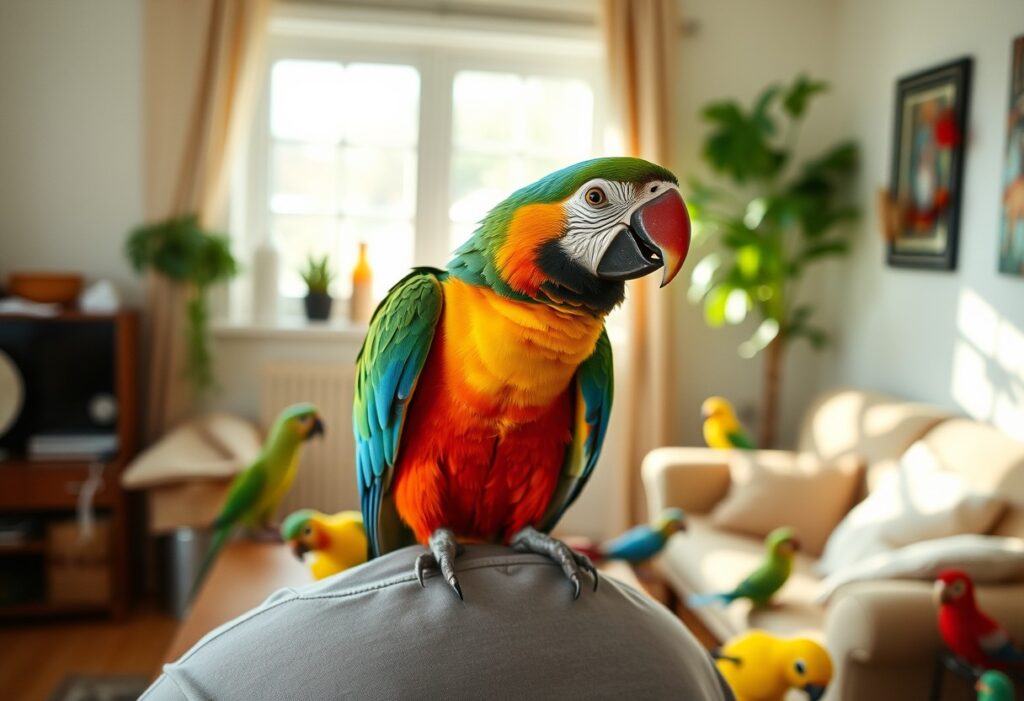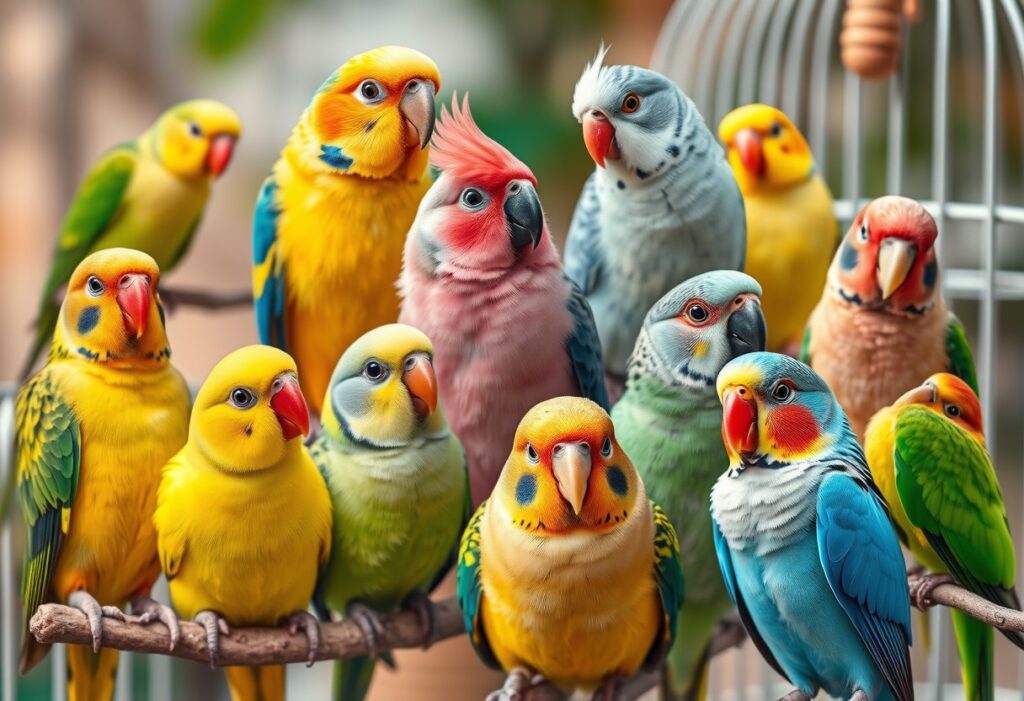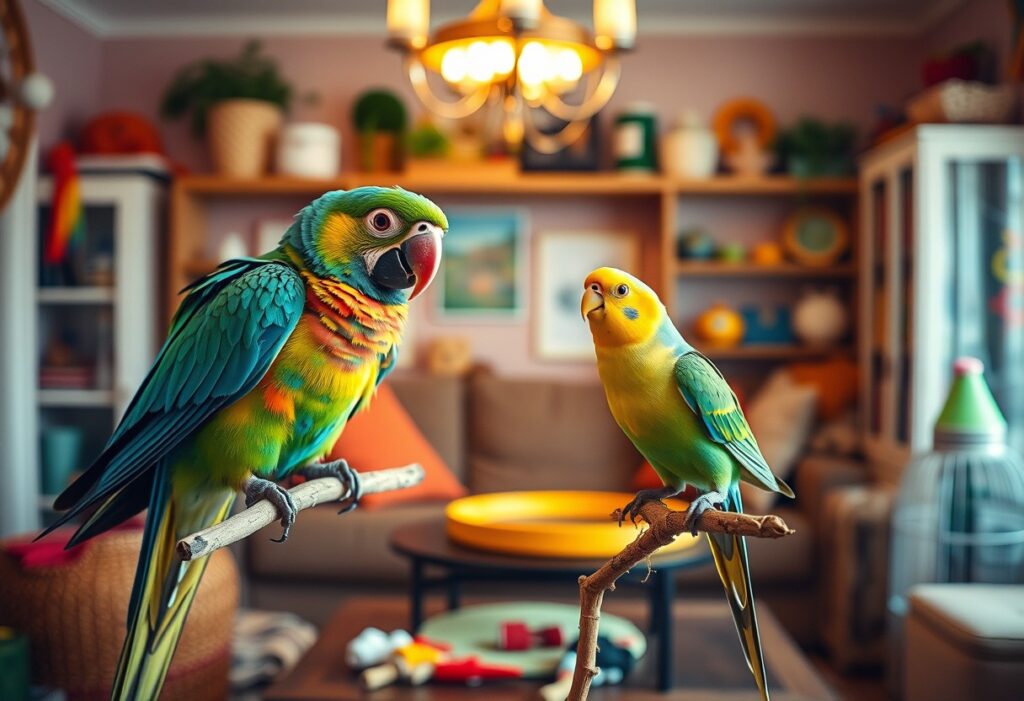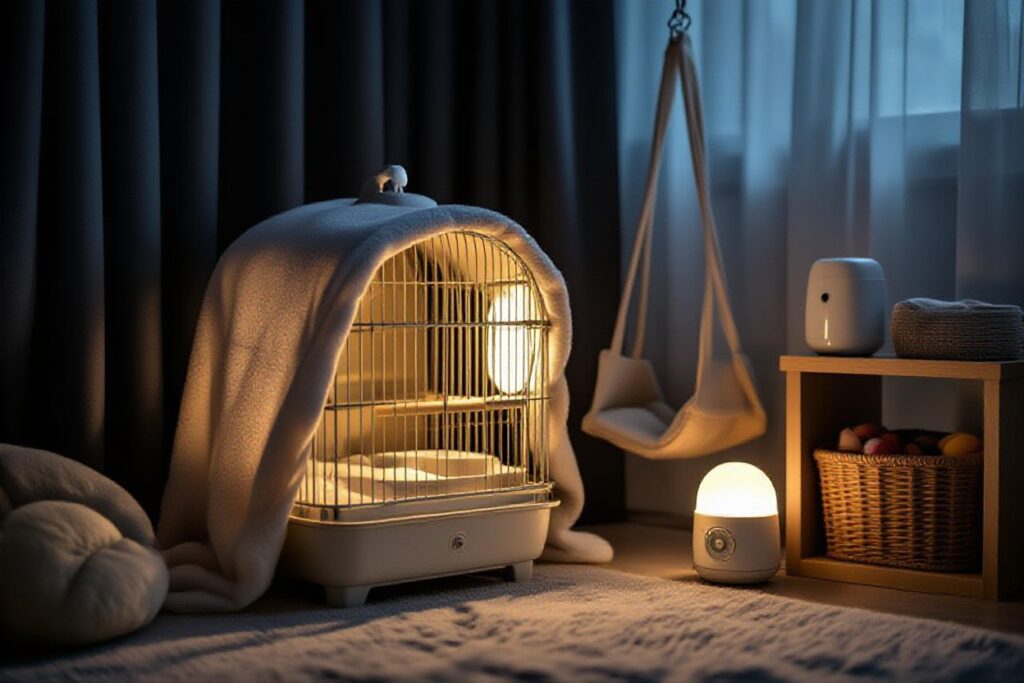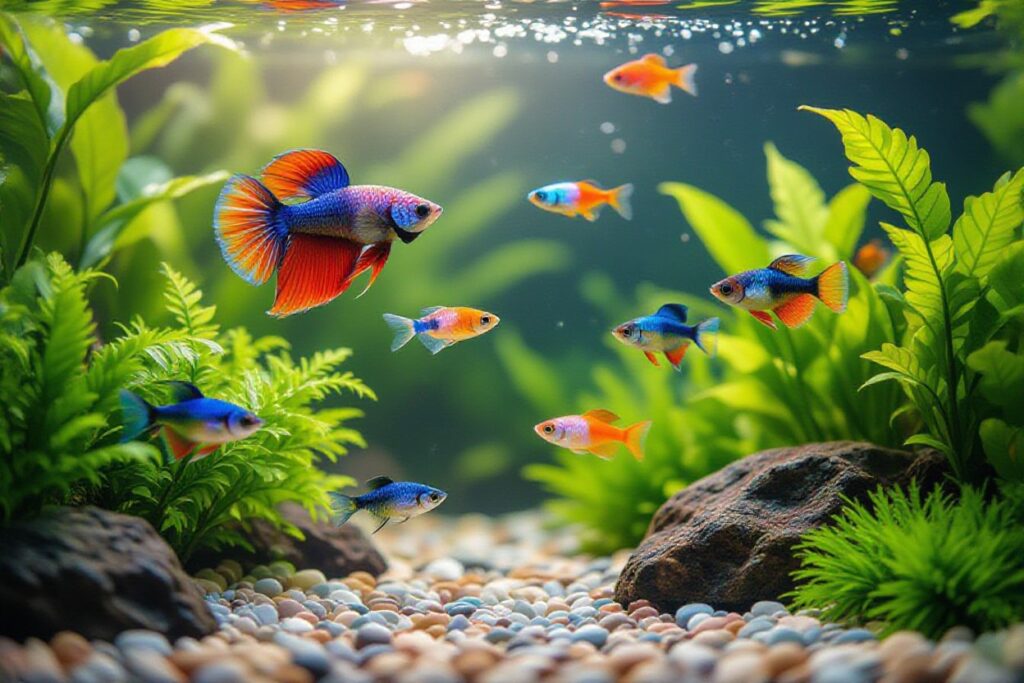Over the years, birds have emerged as popular companions for many pet lovers, and for good reason. Their vibrant colors, engaging personalities, and relatively low maintenance make them an appealing choice for beginners. In this guide, you’ll discover why these feathered friends could be the perfect addition to your home. Whether you’re considering a parakeet or an African grey, understanding the unique needs and joyful quirks of bird ownership will help you make an informed decision. Get ready to explore the enchanting world of pet birds!
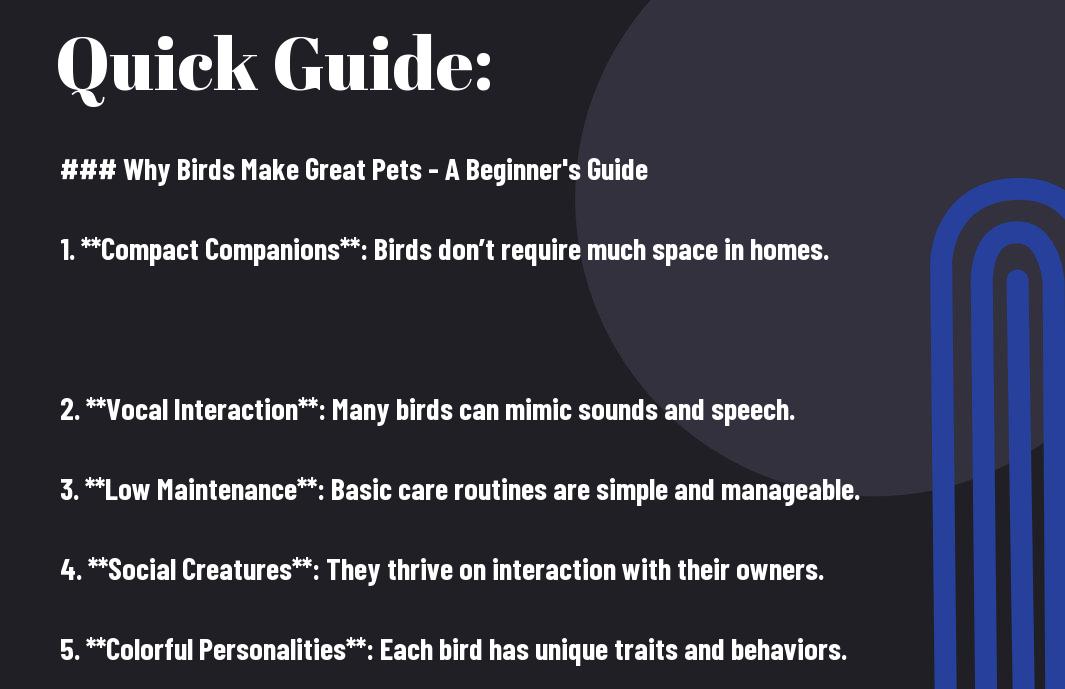
Types of Birds as Pets
To understand why birds make great companions, you should learn about the different types of birds you can keep as pets. Each type offers unique characteristics and care requirements that can fit various lifestyles and preferences. By recognizing the diversity of pet birds, you can make a well-informed decision that suits your needs.
| Small Birds | Generally easy to care for, perfect for beginners. |
| Medium Birds | Require more space and social interaction. |
| Large Birds | Highly intelligent, may require specialized care. |
| Budgerigar | A popular choice, known for their friendly nature. |
| African Grey Parrot | Renowned for their impressive cognitive skills and vocal abilities. |
Small Birds
Now, let’s probe small birds, like *budgies* and *canaries*, which are often the best choice for beginners. These birds are typically less demanding in terms of space and can be kept in smaller cages. Their sweet songs and colorful feathers can brighten up your home without requiring extensive specialized care. Small birds are also generally easier to handle and train, making them an ideal choice if you are new to bird ownership.
Small birds also tend to be more affordable, both in terms of purchase price and ongoing maintenance costs. They eat a simple diet consisting mainly of seeds, pellets, and fresh fruits or vegetables. Additionally, they have a shorter lifespan compared to larger birds, which may appeal to those who prefer less long-term commitment.
Medium Birds
On the other hand, medium birds, such as *cockatiels* and *conures*, present a different set of characteristics that can be appealing to you if you’re looking for a slightly more interactive pet. These birds require a larger cage and more space to roam around, as they are naturally more active and need time outside their habitat. They can be quite social and enjoy spending time with their owners, making them ideal companions for individuals or families willing to provide the necessary social interaction.
Additionally, medium birds can be trained to perform tricks and even mimic sounds, offering a unique bonding experience. However, you should be prepared to invest time and energy into their care. They thrive on mental stimulation and socialization, so interacting with them daily is crucial for their well-being.
Medium birds also require a more varied diet that consists of pellets, fresh fruits, and vegetables, which can add to your grocery bills but also make for a healthier pet. Their **lively personalities** can be a joy to experience, but remember that they can also make a fair amount of noise, so consider your living situation when choosing a medium bird.
Large Birds
Now, let’s explore large birds, such as *macaws* and *African grey parrots*. These magnificent creatures are not only stunning but also highly intelligent and require significant attention and care. Large birds can form deep bonds with their owners, but this relationship demands a commitment of time and energy for training and socialization. Due to their size, they require larger cages and more spacious environments to thrive.
It is important to note that large birds often have complex needs, including enriched environments and social interaction. Their longevity—some species can live for up to 50 years—means you should be prepared for a long-term commitment as a pet owner. Improper care can lead to behavioral issues or health problems, so it is crucial to educate yourself on their specific care requirements.
Summing up, recognizing the type of bird that aligns with your lifestyle and preferences will enhance your experience as a pet owner. Whether you choose small, medium, or large birds, understanding their unique needs will help you create a fulfilling and lasting bond with your feathered friend.
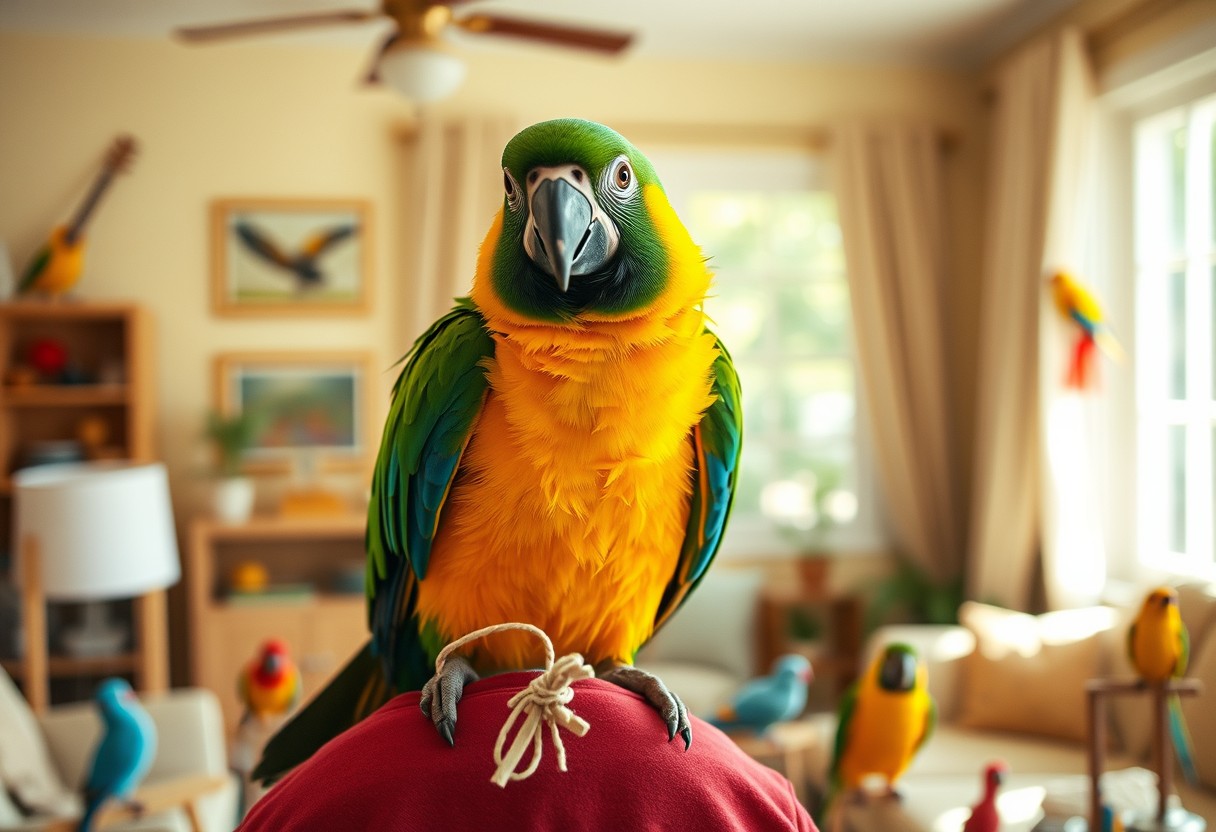
Tips for Bird Care
Little things can make a big difference when it comes to caring for your feathered friend. As a pet owner, it is important to provide a safe, healthy, and stimulating environment for your bird. Here are some helpful tips to ensure that your bird thrives:
- Choose the right cage size to accommodate your bird’s wingspan and activities.
- Maintain a daily cleaning routine for the cage and accessories.
- Provide a varied diet with fresh fruits, vegetables, seeds, and pellets.
- Ensure the cage is in a safe location away from drafts and predators.
- Offer plenty of toys for mental stimulation.
- Establish a consistent schedule for interaction and bonding.
After following these tips, you will create a loving and nurturing environment for your bird, allowing it to thrive as a cherished member of your family.
Diet and Nutrition
You must pay close attention to your bird’s diet and nutrition. Proper feeding is crucial for overall health and well-being. Birds require a balanced diet that includes a mix of pellets, fresh fruits, vegetables, and occasional seeds. Avoid feeding your bird foods that are toxic to them, such as avocado, chocolate, or caffeine. Remember that portion control is important, so be cautious not to overfeed and keep track of their eating habits.
Offering variety in your bird’s diet not only promotes nutritional balance but also keeps mealtime interesting. Experiment with different fresh fruits and veggies to see what your bird prefers. Always ensure clean, fresh water is available and change it daily. By prioritizing your bird’s dietary needs, you can help maintain its health and vigor for years to come.
Socialization and Interaction
For a happy and well-adjusted bird, socialization and interaction are key aspects of its care. Birds are social creatures that thrive on companionship, whether that’s with you or other birds. Spend time interacting with your bird daily, allowing them to become comfortable with your presence. Use gentle tones and body language to build trust and bond with your pet. Through regular handling, your bird will learn to recognize you and feel secure.
Furthermore, understand that some bird species require more social interaction than others. While certain birds are naturally more outgoing and friendly, others may need time to adjust and warm up to you. Patience is important during this process; never force interactions. Providing a stable environment and frequent engagement will help foster a deep bond between you and your bird.
Plus, establishing a routine of bonding activities like playtime outside the cage, tricks, or comfortable talking can enhance this relationship. Birds appreciate mental stimulation, which can be achieved through interactive play. Remember to observe and respect your bird’s signals to determine its comfort level during social interactions.
Enrichment and Environment
Birds require mental and physical enrichment to maintain their well-being. This can include providing various toys, perches, and foraging opportunities within their environment. Change toys regularly to keep your bird engaged, and consider their natural behaviors when selecting enrichment items. Birds love exploring, shredding, and chewing, so give them safe items to stimulate their curiosity.
Create a diverse environment in the cage, ensuring ample space for movement and play. Consider adding swings, ladders, or climbing structures to encourage activity. The location of the cage also matters; place it in a lively area of your home to allow your bird to engage with family life while feeling secure.
Socialization is not the sole focus; both enrichment and providing a comfortable environment are crucial to your bird’s happiness. Regularly reassess its surroundings to ensure that they remain stimulating and safe for your pet.
Step-by-Step Guide to Bird Ownership
Many aspiring bird owners often find themselves overwhelmed by the thought of bringing a feathered friend into their home. However, with proper guidance, you can navigate the path to responsible bird ownership with confidence. Below is a comprehensive step-by-step guide that will prepare you for your new pet.
| Step | Description |
| 1 | Choosing the Right Bird |
| 2 | Setting Up the Habitat |
| 3 | Introducing Your Bird to Your Home |
Choosing the Right Bird
The first step in your bird ownership journey involves making an informed choice about the type of bird that suits your lifestyle and preferences. Different bird species have varying needs, temperaments, and lifespans. For instance, if you have a busy schedule, smaller birds like parakeets or finches may be more suitable than larger parrots that require significant attention and social interaction.
Consider factors such as the size of your living space, your experience level, and how much time you can dedicate to pet care. Researching different species will help you understand their specific requirements and ensure you choose a bird that aligns perfectly with your capabilities and lifestyle.
Setting Up the Habitat
On your path to bird ownership, setting up a suitable habitat is vital for your new feathered friend’s well-being. Choose a spacious cage that allows your bird to move around freely and includes perches, toys, and feeding locations. Make sure the cage is made of safe, non-toxic materials to keep your pet healthy and happy. Additionally, consider placing the cage in a well-lit area that offers a sense of security without being too drafty.
Creating a stimulating environment with various toys and enrichment activities is crucial for your bird’s mental health. Rotate toys regularly to keep your bird engaged and avoid boredom. Make sure to also establish a cleaning schedule for the habitat to ensure it remains hygienic, which is vital for your bird’s health.
For instance, establishing a designated area for your bird to play outside the cage can promote exercise and bonding time. This area should be safe and free from harmful items like houseplants that may be toxic to your pet.
Introducing Your Bird to Your Home
Choosing the right moment for introducing your bird to your home is crucial to reducing stress for both you and your pet. Allow your bird to acclimate to their new environment by placing the cage in a quiet location initially. This space should be free from excessive noise and disturbances, giving your bird a chance to settle in. Gradually encourage interaction by spending time near the cage, talking softly to your bird, and letting them get used to your presence.
Once your bird appears comfortable, you can begin to open the door of the cage and allow them the choice to come out. Remember to be patient during this phase, as it may take some time for your bird to feel confident. Additionally, be mindful of any other pets in your home, ensuring that their introductions are handled delicately.
This gradual introduction process is vital, as hopping too quickly into interaction can lead to stress or fear for your new pet. Make the environment as inviting and familiar as possible to facilitate a smooth transition.
Factors to Consider Before Getting a Bird
Once again, selecting a pet bird is a rewarding endeavor, but it is important to think critically about several factors beforehand. Owning a bird comes with unique responsibilities that you should not overlook. Here are some key factors to consider:
- Time Commitment
- Space Requirements
- Allergies and Sensitivities
Time Commitment
Commitment is crucial when it comes to owning a bird, as they require daily interaction and attention. Unlike some other pets, birds are highly social creatures that thrive on companionship. You need to dedicate time each day for bonding, training, and engaging activities to promote their mental and physical well-being. The average lifespan of a bird can range from 5 to over 30 years, depending on the species, which means that bringing a bird into your home is a long-term commitment.
Moreover, some birds, such as parrots, can develop emotional issues if they feel neglected. Therefore, it is critical to assess your daily schedule to ensure that you can provide the necessary attention and care. Making time for your new feathered friend will not only enhance their quality of life but also enrich yours as you build a lasting bond.
Space Requirements
You also need to consider the space that your bird will require. Birds need adequate room to fly, play, and explore. This is especially important for larger species that are more active and require specific dimensions in their living environment. Ensure that you have a proper-sized cage that allows your bird to stretch its wings and engage in natural behaviors. The cage should be positioned in a common area of your home where they can feel included.
It is equally important to designate a safe area for your bird to exercise outside of the cage. Birds love to explore and benefit from a variety of perches, toys, and climbing opportunities. A stimulating environment not only keeps them physically fit but also mentally sharp. Being mindful of both the cage size and the space you can provide will ensure that your pet bird leads a fulfilling and active life.
Allergies and Sensitivities
If you or anyone in your household has allergies or sensitivities, you should carefully evaluate the potential implications of bringing a bird into your home. Bird dander, feathers, and droppings can exacerbate existing allergies. It’s crucial to determine whether you can manage or mitigate these allergens. You may need to consider specific breeds known for being less allergenic, such as budgerigars or canaries.
Before making a decision, consult with family members about any allergies they may have and consider regular cleaning routines that can help minimize allergens. Investing in air purification systems and routinely cleaning your bird’s environment can make a significant difference. The key is to ensure that welcoming a feathered friend does not compromise anyone’s health.
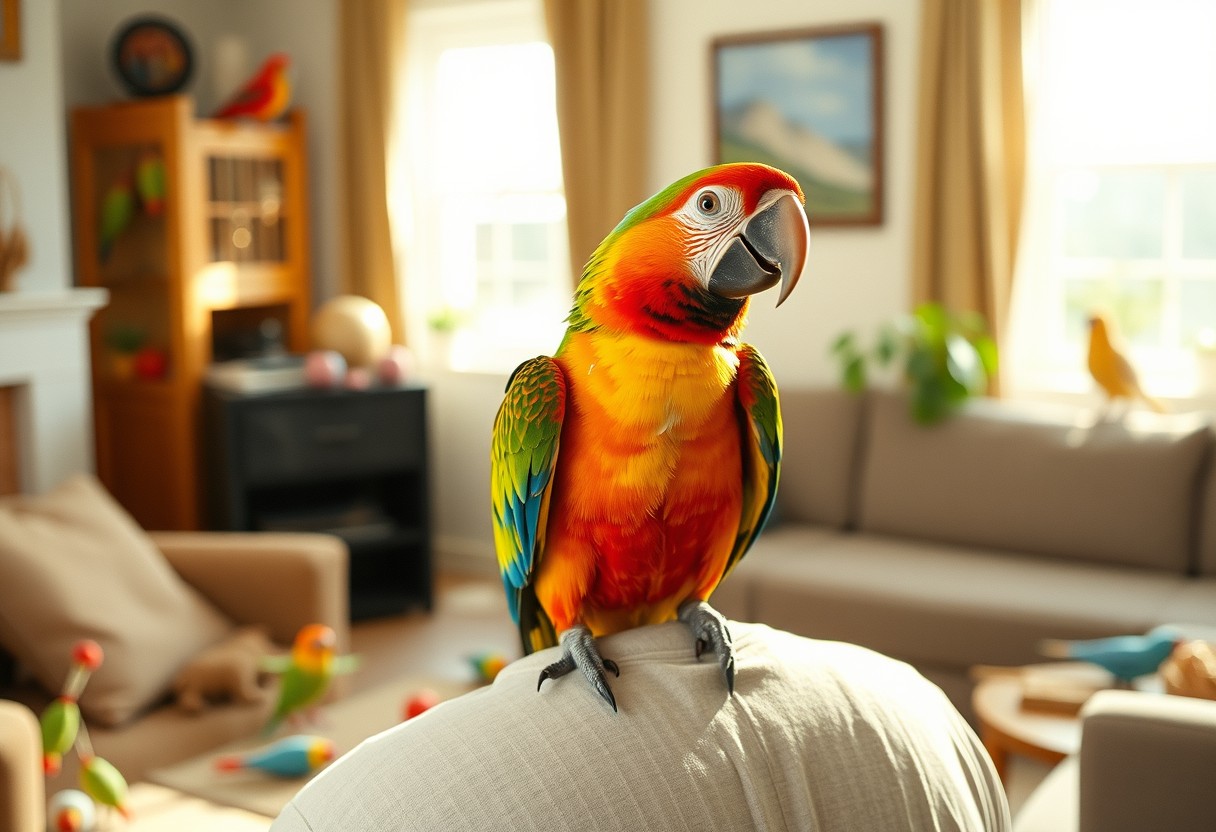
Pros and Cons of Bird Ownership
Unlike many other pets, birds exhibit unique and engaging behaviors that can enrich your life. However, it’s necessary to consider both the pros and cons before committing to bird ownership. Below is a comprehensive list to help you understand the full spectrum of what it means to own a bird.
Pros and Cons of Bird Ownership
| Pros | Cons |
|---|---|
| Low space requirements | Some birds can be noisy |
| Intelligent and social animals | Daily cleaning is needed |
| Variety of species to choose from | Specialized diets may be necessary |
| Bonding opportunities are plentiful | Health care can be expensive |
| Some birds can learn to talk | Long lifespan (commitment to care) |
| Encourages routine care | Potential for allergies |
| Great for kids’ education | Socialization needs must be met |
| Can be trained to do tricks | Not all birds are suitable for all households |
Benefits of Having Birds as Pets
Little do many people know, birds can be incredibly engaging companions. They possess remarkable intelligence and can bond closely with their owners, offering a sense of companionship rivaled by few other pets. Their social nature means they will often seek your attention and can even mimic your voice and sounds, adding a layer of interactivity to your daily routine. This unique communication can provide joy and entertainment in your household, making it a rewarding aspect of bird ownership.
Furthermore, birds can teach you valuable lessons in responsibility and empathy. Caring for an animal that requires daily attention helps reinforce good habits, such as maintaining a consistent schedule for feeding, cleaning, and health checks. Additionally, their presence can significantly enhance your quality of life; studies have shown that pet ownership can reduce stress levels and promote overall emotional well-being.
Challenges and Responsibilities
Benefits of owning birds come hand-in-hand with certain challenges that you must be prepared to face. Birds require daily interaction and mental stimulation to thrive, or else they may display behavioral issues such as biting or excessive screaming. Moreover, you’ll need to provide a large enough cage and suitable enrichment to keep their environment engaging. Each bird species may have specific dietary requirements and medical care, which can be both time-consuming and financially demanding.
For instance, some bird species can live for decades, requiring a long-term commitment to their care and well-being. This long lifespan means that you should be ready for a serious commitment, ensuring that your lifestyle can accommodate their needs over time. In addition, birds might not adapt well to changes in their environment, which can lead to stress and behavioral problems. Therefore, it is crucial that you weigh these considerations against the joy and companionship that bird ownership can bring.
Final Words
As a reminder, choosing a bird as a pet can be a rewarding and fulfilling experience for you. Birds are not only beautiful and fascinating creatures but also possess unique personalities that can bring joy and companionship into your life. They offer the opportunity for interactive play and socialization, enriching your daily routines with their charming antics and vocalizations. Whether you are drawn to the playful nature of parrots or the calm presence of finches, understanding the specific care requirements and social needs of your feathered friend will set the foundation for a harmonious relationship.
Ultimately, by taking the time to educate yourself about bird ownership and considering the right species for your lifestyle, you can create an enriching environment for both you and your pet. Remember that birds thrive on social interaction and mental stimulation, so be prepared to invest the necessary time and effort into their care. With your commitment and attention, you will not only be rewarded with a delightful companionship but also cultivate a lifelong bond with your avian companion that will enhance your home and heart.
FAQ
Q: What are the benefits of having a bird as a pet?
A: Birds make wonderful pets for a variety of reasons. Firstly, they are often very social and can form strong bonds with their owners, providing companionship. Many species are also intelligent and can learn to mimic sounds or even speak, which can be entertaining and engaging for pet owners. Furthermore, birds have a variety of personalities, so you can often find one that matches your lifestyle and preferences. They also require less space than larger pets, making them suitable for people with limited living areas. Additionally, caring for a bird can be less demanding in terms of exercise compared to larger animals, as many birds simply require time outside of their cage to fly and play.
Q: What types of birds are best for beginners?
A: For first-time bird owners, smaller and more manageable species are usually recommended. Budgerigars (commonly known as budgies), cockatiels, and lovebirds are popular choices due to their friendly nature and relatively easy care requirements. Budgies are particularly known for their sociable behavior and ability to learn tricks. Cockatiels are affectionate and enjoy interaction, while lovebirds are playful and full of personality. It’s important to research the specific needs of each species, as some may require more social interaction or specific diets compared to others. Starting with a bird that fits well with your lifestyle can lead to a rewarding and enjoyable pet ownership experience.
Q: How do I care for my bird to ensure its well-being?
A: Caring for a bird involves providing a suitable environment, balanced nutrition, and regular social interaction. Ensure that your bird’s cage is spacious enough, with perches and toys to keep it mentally stimulated. A varied diet is crucial, including high-quality seeds, pellets, fresh fruits, and vegetables. Maintaining social interaction is also crucial, as birds thrive on companionship—spending time talking, playing, and training your bird will build a strong bond. Regular veterinary check-ups are important to monitor your bird’s health and address any potential issues early. Lastly, ensure that your bird’s environment is safe, free from hazards like toxic plants or open windows, to create a secure and happy habitat.
